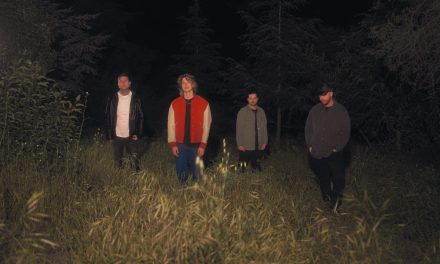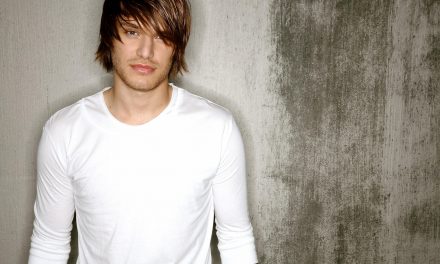
Josie Cotton and the Ukrainian Cowboy
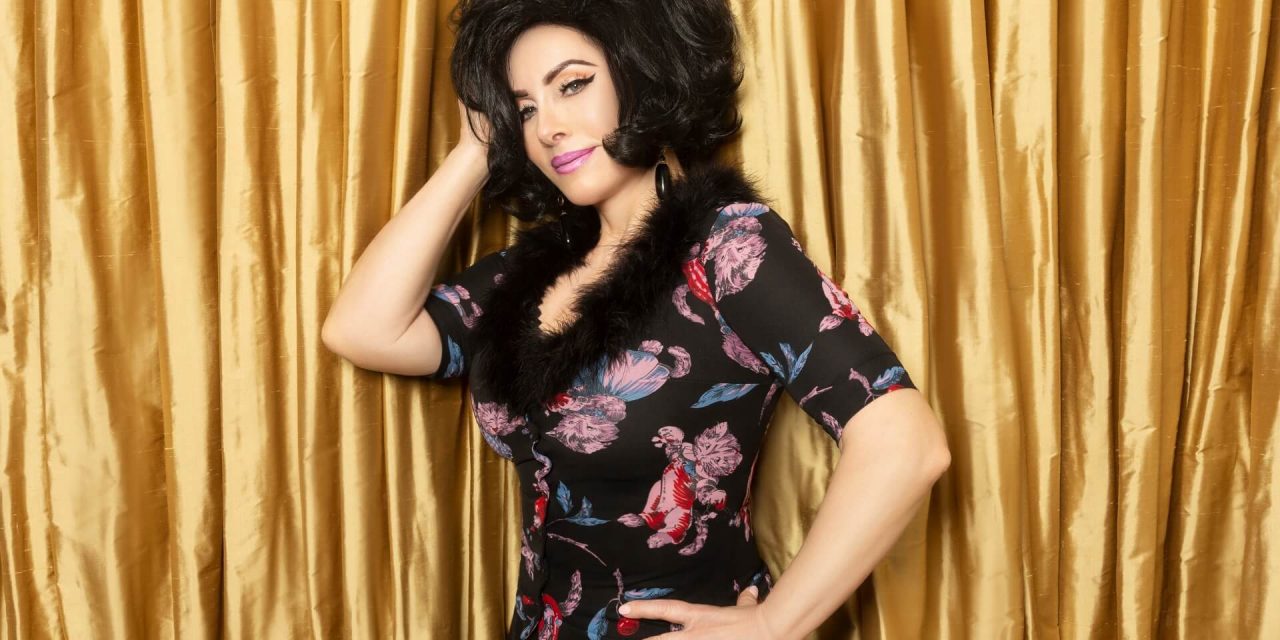
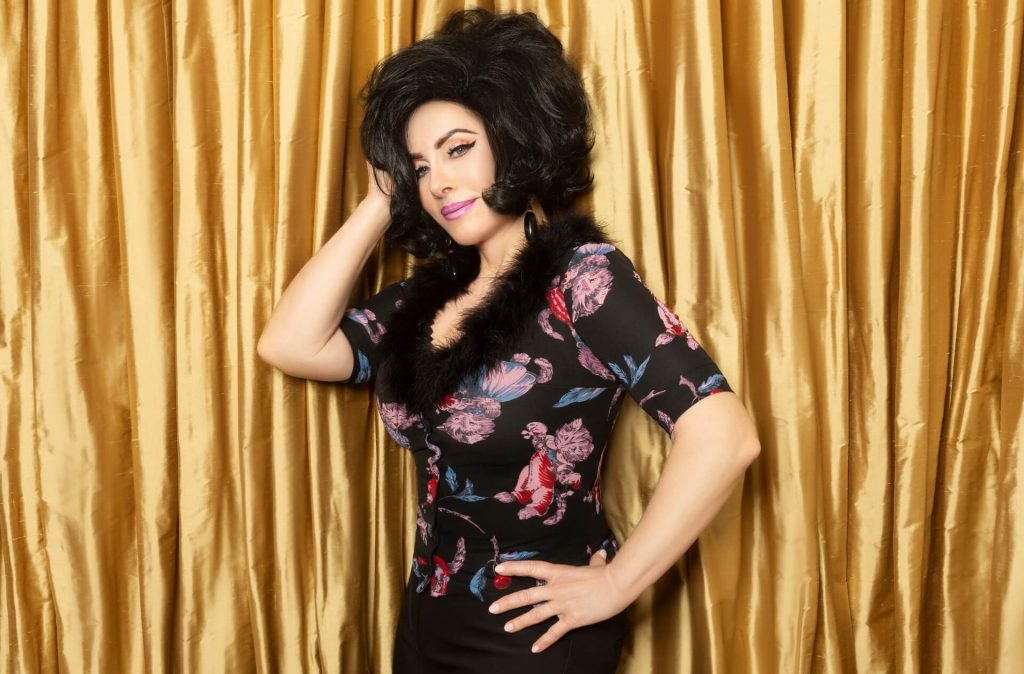
Josie Cotton and the Ukrainian Cowboy
Josie Cotton has returned, ready to present the world tales of the Ukrainian Cowboy as well as an unreleased album from the past entitled Everything Is Oh Yeah – soon to be available via Kitten Robot / Cleopatra Records! Best known for her 80’s new wave classic Johnny Are You Queer?, Josie Cotton remains a creative force ready to set the imagination in flight. Highwire Daze recently interviewed the iconic Josie Cotton at a coffee house on the Sunset Strip. Read on…
Is there any overall story or concept behind your new song Ukrainian Cowboy?
Well, it was a song that accidentally happened, I guess they’re all accidents, really, I’ve never intentionally written on that topic. It was an old song I had and I could never finish it, for years I had it. And I was just watching the news one night, and I had my guitar and I’m trying to finish this one line, all of a sudden I just heard “Russia!” in the background and it changed the whole direction of the song. It was a song about Texas, and it became a song about Russia. And it was still a cowboy song but it was now a Russian cowboy, it was something I just came up with because we needed some kind of title, we didn’t know what it was called and, off the top of my head, it was really a joke. Then it stuck and I tried to change it and people go, “No, no, no, you have to keep that title.” It’s not even about Ukraine, I’ve been told, it’s really about Russia…[laughs]
Do you have any fascination for Russian culture or have you ever been to Russia or Ukraine?
Well, what struck me when I heard the word Russia– I mean, you hear right on the news, every day it’s like, “Russia, Russia, Russia.” And I was like, “Oh my God, stop with the Russia!” And when I put it in my song, all of a sudden I was tuning in to all these documentaries I had seen. I mean I became obsessed with World War II documentaries, they have amazing ones now where they’re right in the trenches. I mean, it’s just unbelievable about Stalin and all this, and I became very obsessed about that time in history so it was going on in my head all the time, at any rate, and this current situation is just so insane. So, the combination of that and now I had a song, that was actually a love song but I could place it back in World War II, it just became funny. But it’s a sad song and I loved the combination of humor and tragedy, it’s just a fuze to me. I don’t know why. It was a sickness I had.
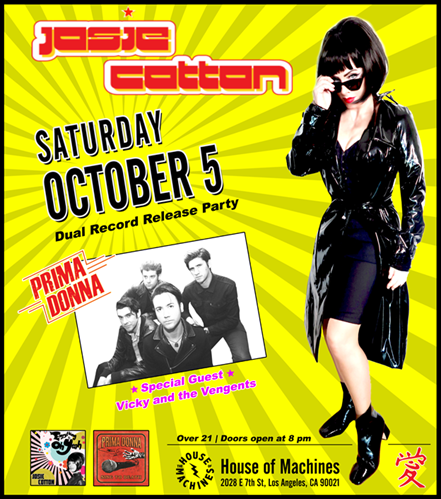
Everything Is Oh Yeah is coming out now after all these years! How does it feel to revisit these songs? I mean, it must be strange.
It’s strange. Yes. It always made me a little sad, to not finish something you worked so hard on, there’s always a little melancholy feeling you have about it. So I was starting to work with a music publisher, Red Queen, and they were asking me if I had any songs from the 80’s that I recorded that were never released, for the show Stranger Things. It was that they were looking, and I was like, “Yes, I do have that, I have a whole record of unreleased 80s songs.” But I didn’t know if they had been destroyed these tapes, because they’ve moved around so much and there was a fire, there was an earthquake, there was a flood, just incredible California living. Anyway, they ended up in the rafters of my present recording studio, Kitten Robot. Paul Roessler said, “There was a flood, I don’t know if they survived.” So we found them and they just sounded amazing. The Paine Brothers (also the composers of Johnny Are You Queer?) were such incredible producers, it was absolutely thrilling to hear it all. We just remixed it, Paul and I, and it was kind of wonderful, it really felt full circle, like something good was happening with that, the epic story of my life.
Here comes the “Johnny, are you queer?” question…
Yes, here it comes.
Let’s talk about some of the initial controversy and reactions the song had, first of all, from conservatives, and then even the gay press.
In New York, on the East Coast.
Tell me about some of those and how that made you feel.
Well, it was shocking because on the West Coast, it really was an anthem. I had so many gay guys come up and just say, “that that song made it okay for me to be gay, I came out because of ‘Johnny, Are You Queer?’”. I’ve heard that just so many times, it was kind of wonderful. They were so happy to be just recognized, or to own that word, I think, was huge. I was, “okay, this is fantastic!” And then all of the sudden, I heard rumors.
In New York with the gay community, it was just much more political than California, and they were not happy with it. I was on the cover of Village Voice, (and the headline read) “Josie, Are You A Bitch?” That was the moment when I went, “Why?” [laughs] Yes, and later on I realized that was around the time that AIDS was happening, and there was a lot of political correctness and concern that that was homophobic, but they didn’t believe that in the West Coast. That was schizophrenic.
Then the religious right became like “Bosom Buddies” with the gay press in New York. They were like down on me, I felt like I was being run out, burned at the stake. It was so crazy at the time. The song was banned in Amsterdam, and the Catholic Church came after me, and corporations backed away from a lot of stuff I was doing. It was really insane. I just wanted to do a fun song and it was like, “don’t stone me to death, please, it’s just a singer…”
On your first album Convertible Music you had some interesting musicians with you. Including J.B. Frank, who eventually joined a metal band called Kingdom Come. What was it like working with him and was Kingdom Come around back then?
No, they weren’t around. He was wonderful. They called him like the Golden Stallion or something. He just had this incredible hair. He was in (the movie) Valley Girl in my band, and he’s the most charming, wonderful on everything. Yes, he wrote a couple of the songs on there, and yes. We were great friends, I’m still friends with him, yes.
And of course what was it like being in Valley Girl?
Well, I didn’t know it was going to keep going and never die, I mean, I just really didn’t know it was going to be iconic, yes. Looking back on it, I think that was the moment when really alternative music that wasn’t allowed on the radio went mainstream. I mean, those people weren’t allowed on the radio, really. For the most part, that was where alternative music went mainstream and it changed a lot of the ‘80s music. I really was proud to be on that record, with all those amazing artists and whatnot.
Do you have any messages for longtime Josie Cotton fans who are reading this right now? I really do have the most amazing, sweetest, loyal fans. Just hold on, it’s all coming out now. They are always asking me, “When you’re going to release all these records that you made that no one has heard?”And it’s happening now.
Be sure to catch Josie Cotton at The House Of Machines in Los Angeles for the Everything Is Okay record release show on October 5th!
(Interview by Ken Morton – Photo by Piper Ferguson)











